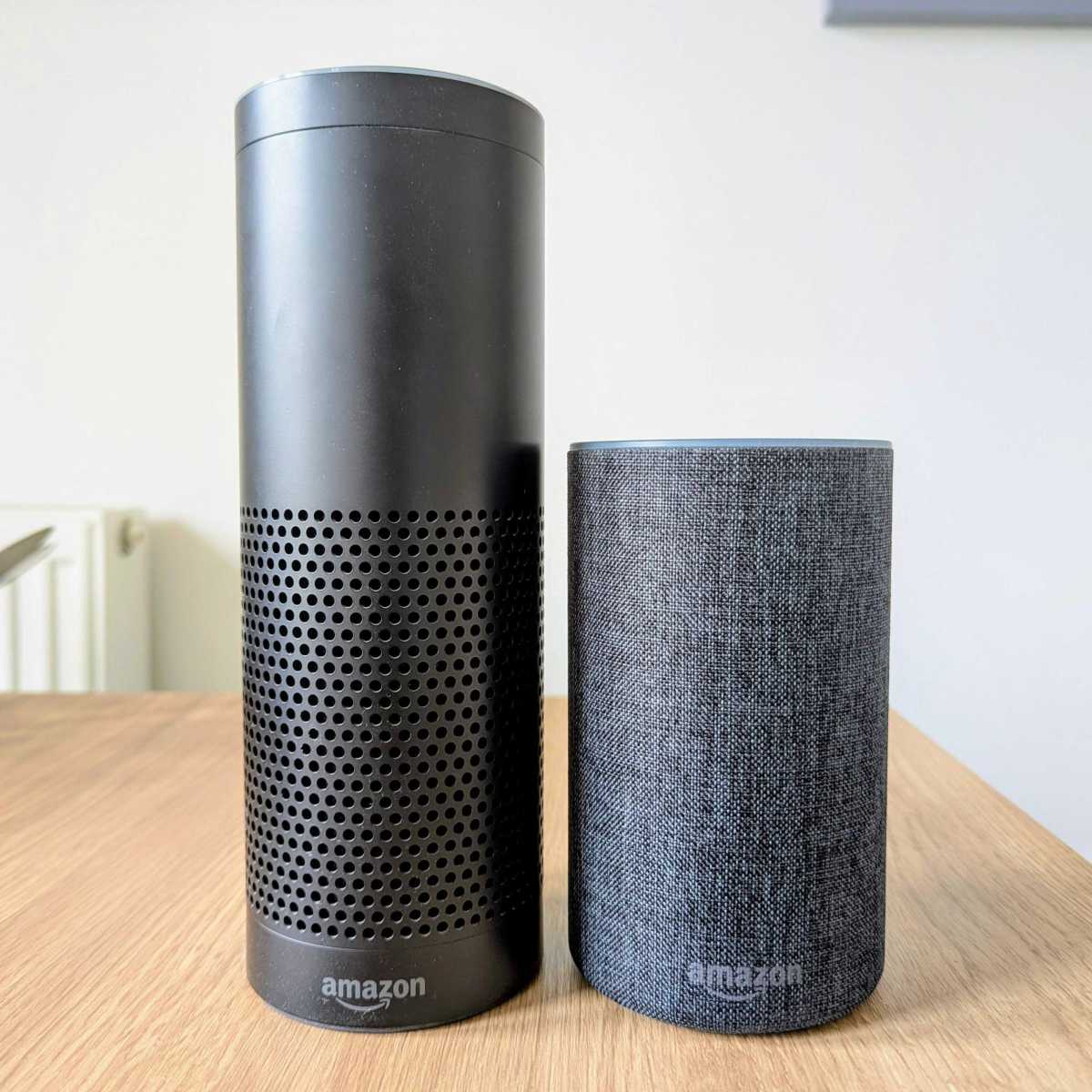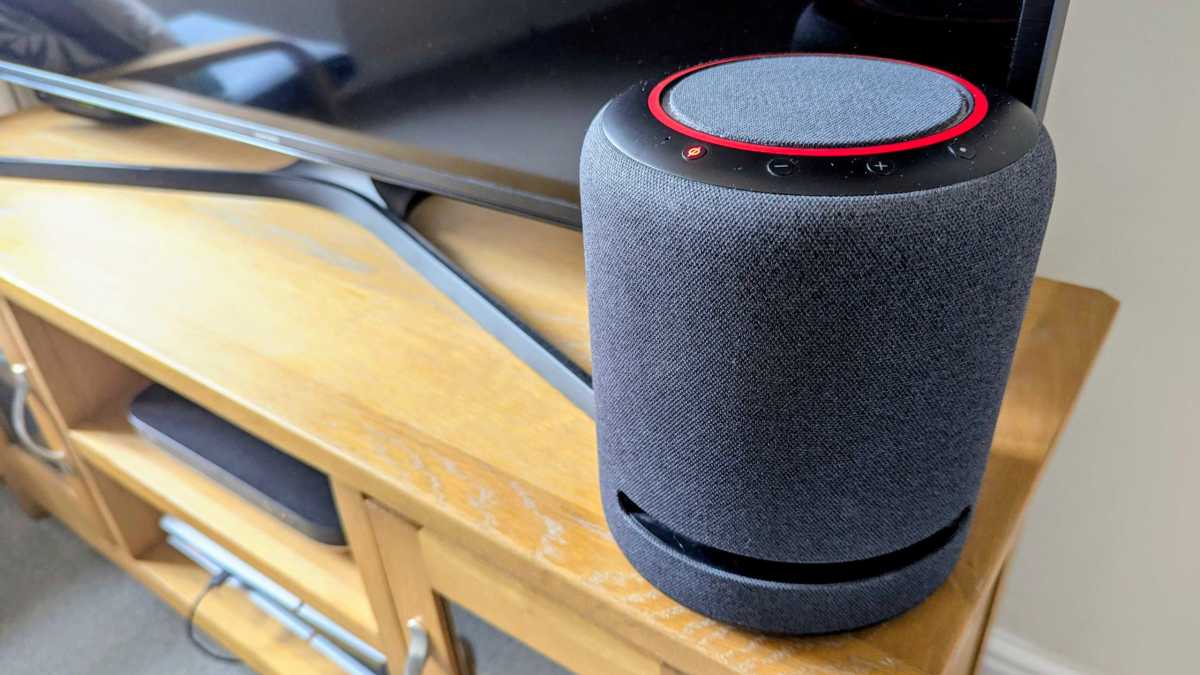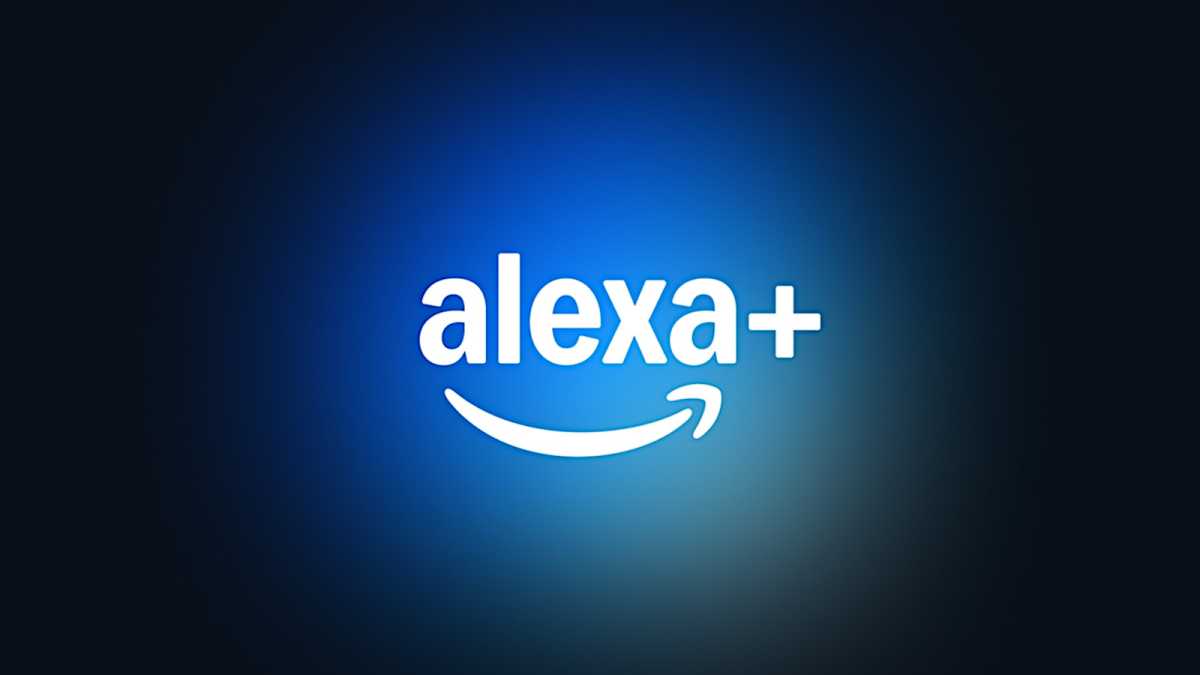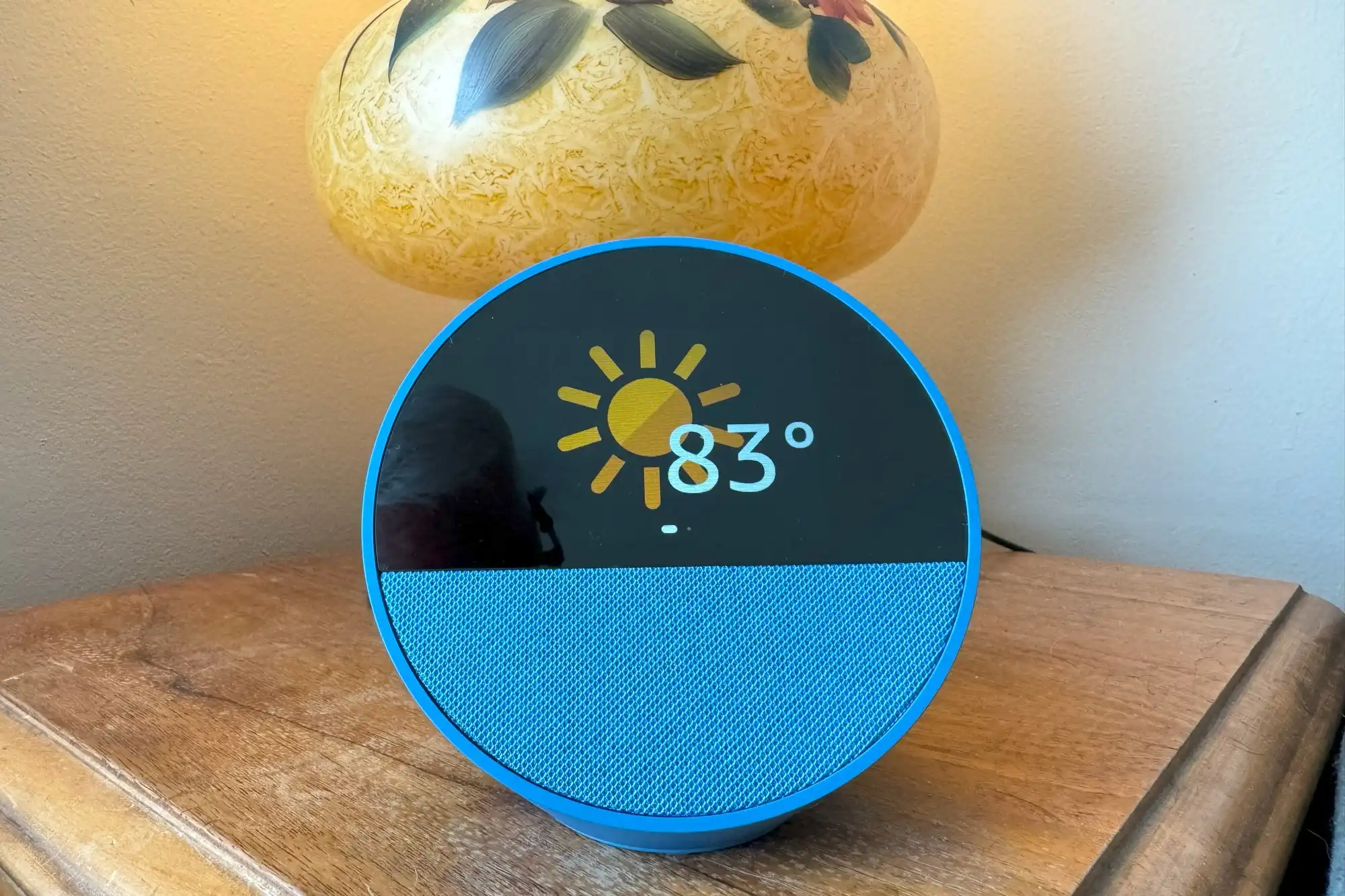When Amazon first launched the Echo smart home speaker and the Alexa voice assistant, I was excited beyond belief. It felt like a true evolution in tech, something straight out of the science fiction from past decades. Here it was, a real product you could buy and own.
Sure, the Echo itself was ostensibly just a speaker, but the Alexa ecosystem underpinning it made it so much more than that. It was smart, it was functional, and it was a step in the right direction for forward-thinking people keen to build a smart home.
But now, a decade on from its launch, it feels like the Alexa platform has run out of steam. I used to use my Echo all the time, but not anymore. Here’s what happened and what could get me back.
I was an Alexa early adopter
The first Echo speaker I bought was the tall, plasticky, first-generation model that came to the UK in 2016. I then bought a second-generation model for my office a year later. Finally, I received an Echo Studio as a Christmas gift in 2019, which took pride of place in my living room and relegated the original Echo to my bedroom.
Over the years, I’ve used my Echo speakers for all kinds of stuff. The main one has always been listening to music, especially during the COVID lockdowns when I was confined to my house for long periods. Being able to ask Alexa to stream (or switch) songs on Spotify by simply uttering a command was a godsend. It really helped pass the time.
But I’ve also used Alexa to convey weather forecasts for the week ahead, give me rundowns of news headlines of the day, explain the meanings of words and concepts, answer simple off-hand questions that pop into my head, and even play games every once in a while.

Dave Parrack / Foundry
And it’s not like I’m a full-blown smart home geek! I loved the idea of a smart home but never fully embraced the concept, yet even I got to do cool stuff with some smart light bulbs controllable via Alexa. For example, I programmed them to come on at specific times of day throughout the year. Yeah, I got a lot of use out of my Echo devices.
I’m using Alexa and my Echo speakers less
These days, I really only use my Echo speakers to listen to talk radio (via TuneIn) and music (via Spotify Premium). All the other novelty stuff gradually lost their luster and fell by the wayside.
The biggest reason for this has been the advent of generative AI and the speed at which it has evolved in just a few short years. LLMs like ChatGPT make Alexa feel dull and limited by comparison. I can ask ChatGPT pretty much anything I want and it’ll have an answer—an answer that may not be entirely correct and needs double-checking, but most of the time it’s accurate enough to pass. I can hold full back-and-forth conversations with AI in ways that would make Alexa jealous.
I’ve written a few articles about different ways to use ChatGPT, including mundane tasks ChatGPT can handle for you and fun things you can do with ChatGPT when you’re bored. My colleagues have also written about using ChatGPT to improve your life and other practical uses for it.

Dave Parrack / Foundry
I’ve also grown more concerned over the privacy implications of an always-on and always-listening smart speaker in every room of my home. While Amazon wants to assure us that Alexa is only listening for its wake word, it’s hard to shake that unsettling feeling. And if you check your voice command history in the Alexa app, you may be surprised at some of the things it has picked up over the years. (That’s what actually led me to mute the microphones on my Echo devices until I need them.)
Overall, I simply find that my Echo speakers and Alexa are now overshadowed by other options. Where I was once excited to explore new Alexa skills and features, I now just default to using it for the boring basics as I’ve always done. I can’t even remember the last time I cared to seek out a new Alexa skill to install and use.
Will AI make Alexa relevant again?
I’m unconvinced that Amazon will be able to bring Alexa and its Echo range back to where they once were. Sure, millions of people own one (or more) and have them plugged in somewhere at home. But I suspect that, like me, many people have stopped using Alexa.
Amazon’s next big hope is Alexa+, the next-generation AI-powered version of Alexa that was announced in February 2025. Currently in Early Access, it promises to be a lot more like ChatGPT and other LLMs: more conversational interactions, personalized memories that are retained across devices, more context awareness, with higher ambitions than the first (and current) iteration of Alexa. Ben Patterson got to try Alexa+ and came out with mixed takeaways.
Alexa+ is slated to cost $19.99/month and will be compatible with most Echo devices beyond first-generation models. Or, if you have Amazon Prime, Alexa+ will be included as a “free” perk, giving current subscribers yet another reason to keep paying for the service.

Amazon
Amazon’s Echo line is still the most popular smart speaker brand in the US and elsewhere, so these devices aren’t going anywhere. But since Amazon doesn’t share sales figures for its products, we don’t know how it’s trending. Amazon may still be moving plenty of units, but are buyers even using Echo for Alexa and smart home controls? Or simply as smart speakers? (They’re admittedly quite good as the latter.)
As for me, I’m cautiously hopeful. My Echo devices are mostly gathering dust now, and they’ll remain that way until the whole Alexa ecosystem is upgraded. I wonder if Alexa+ will be that upgrade? I won’t be able to find out until it leaves Early Access. Until then, Alexa just isn’t capable enough… and the privacy concerns are real.
Further reading: Alexa’s big AI makeover: 8 key things to know
This articles is written by : Nermeen Nabil Khear Abdelmalak
All rights reserved to : USAGOLDMIES . www.usagoldmines.com
You can Enjoy surfing our website categories and read more content in many fields you may like .
Why USAGoldMines ?
USAGoldMines is a comprehensive website offering the latest in financial, crypto, and technical news. With specialized sections for each category, it provides readers with up-to-date market insights, investment trends, and technological advancements, making it a valuable resource for investors and enthusiasts in the fast-paced financial world.
